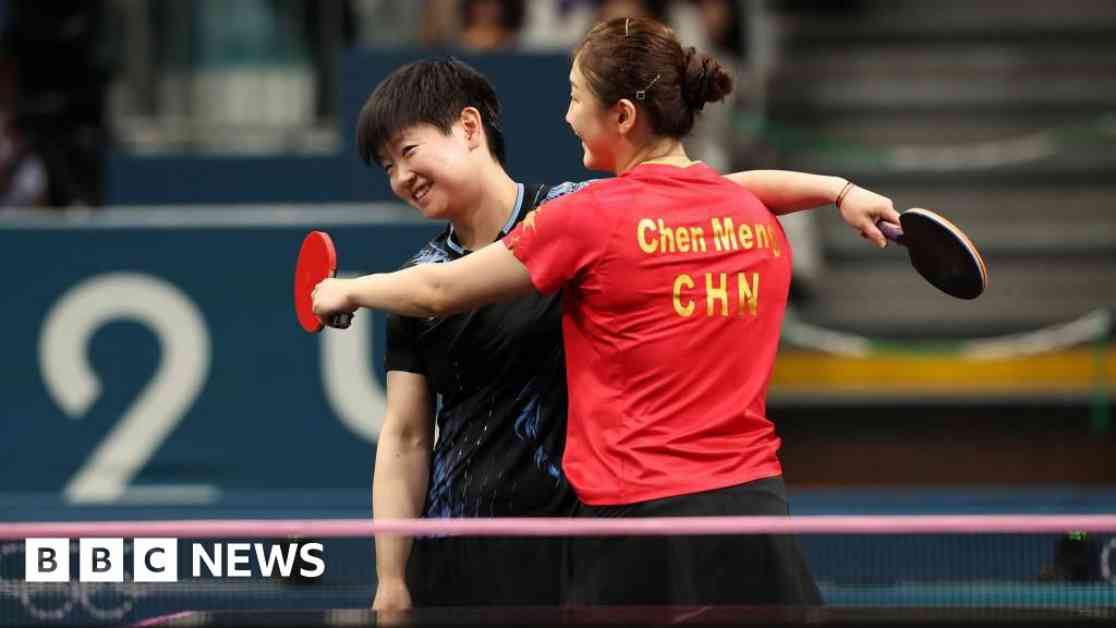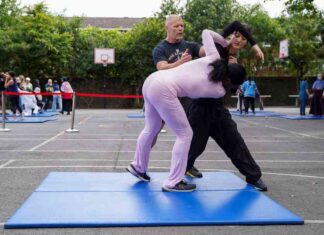Beijing is taking action against what it calls “aggressive fans” who are negatively impacting the performance of Chinese athletes at the Paris Olympics. This crackdown is part of a broader effort to combat celebrity worship that has been ongoing for years.
Recent reports from state media have highlighted instances of “inappropriate” behavior by fans, such as booing during events or accusing referees of bias. The situation came to a head on 3 August when Chen Meng defeated Sun Yingsha in the table tennis women’s singles final. Despite Chen’s victory, many fans expressed support for Sun and criticized Chen’s win by suggesting Sun was at a disadvantage due to earlier matches.
This outpouring of support for Sun led to a wave of negativity on Chinese social media platforms, prompting the removal of thousands of posts and the banning of hundreds of accounts. One individual even went as far as wishing for Chen to test positive for banned substances so that Sun could be awarded the gold medal instead.
In response to this behavior, authorities have arrested a woman for making defamatory comments about the match. The police stated that her actions had a negative impact on society by spreading false information and defaming others.
This incident is just the latest in Beijing’s efforts to combat what it sees as a “toxic” celebrity culture. Measures have been taken to ban celebrity rankings, restructure fan clubs, and remove harmful content from fan pages. The state-run Global Times newspaper has published articles criticizing the aggressive fan culture in sports, warning of the negative impact it could have on the sporting world.
In addition to addressing inflammatory comments directed at athletes, authorities have also denounced fans who disrupt matches by cheering loudly or using flash photography. They have also called out individuals who profit from selling memorabilia signed by athletes. These actions not only hinder the training and competition of Chinese athletes but also tarnish the reputation of Chinese sports.
The Shanghai Daily has called for social media platforms to enforce strict policies against malicious behaviors, while sporting organizations are urged to take a firm stance against fan mania. The goal is to create a more respectful and supportive environment for athletes to compete in.
Chinese authorities have been vocal about their concerns regarding fan culture even before the Paris Olympics. Last year, the Chinese Olympic Committee and General Administration of Sport of China reprimanded fans for filming and following athletes, stating that such actions disrupt public order and good customs. They emphasized the importance of respecting athletes and maintaining sportsmanship and social morality.
As the Olympics approach, Chinese athletes have been warned not to engage with fan clubs, with the aim of preventing the chaos of fan culture from affecting sports. Athletes have expressed their desire to be treated with respect and have called for fans to express their preferences without attacking others. Ultimately, the message is clear: mutual respect and support are essential in creating a positive environment for athletes to thrive in.



























